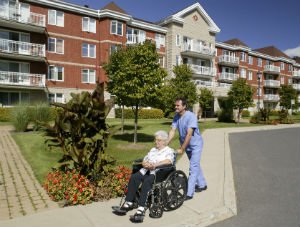 Low-quality care is causing many avoidable deaths at Pennsylvania nursing homes, according to findings from PennLive’s comprehensive, six-month investigation of nursing homes in the state.
Low-quality care is causing many avoidable deaths at Pennsylvania nursing homes, according to findings from PennLive’s comprehensive, six-month investigation of nursing homes in the state.
PennLive found that almost 40 percent of Pennsylvania nursing homes are providing below average or close-to-below average care, according to the Nursing Home Compare rating system that is run by Medicare. That means that Pennsylvania has the 10th highest percentage of low-quality nursing homes in the country.
Substandard care could be contributing to deaths at Pennsylvania nursing homes. PennLive found that nursing homes reported 259 deaths because of injuries, medication errors or other serious incidents from 2013 to 2015.
However, the Pennsylvania Department of Health only categorized 46 of those as care-related deaths. Some of the experts who were interviewed by PennLive acknowledged that nursing homes probably were not at fault for all of the 259 deaths reported. But they also said that only 46 citations for care-related death seems low.
Penalties for Nursing Home Abuse
The Pennsylvania Department of Health only issued penalties for half of the 46 cases of care-related deaths from 2013 to 2015.
This appears to be part of a trend in Pennsylvania to not issue penalties against nursing homes. In fact, the number of penalties issued by the state against nursing homes fell to record lows during the previous governor’s term in office.
Experts claim that the penalties that do get issued are so weak that they do not serve as a deterrent for nursing homes to provide better care. The average fine for care-related death from 2013 through 2015 was just $13,593.
PennLive’s investigation consisted of interviews with over 60 government and industry officials, families of nursing home residents, advocates, and experts.
If your elderly loved ones have suffered nursing home abuse, they could be entitled to compensation for their injuries. Contact the caring nursing home abuse attorneys at Schmidt Kramer for your free consultation.
Call us today at (717) 888-8888 or complete a Free Case Evaluation form.

